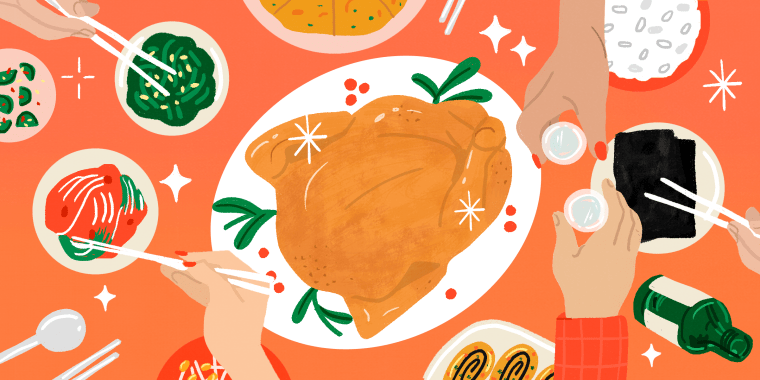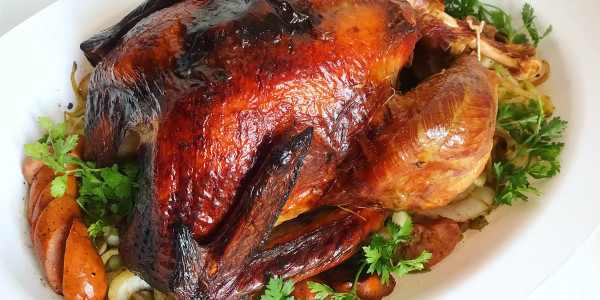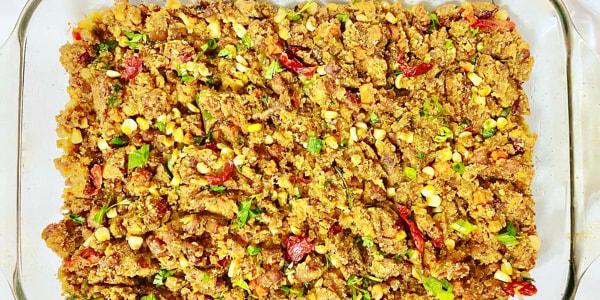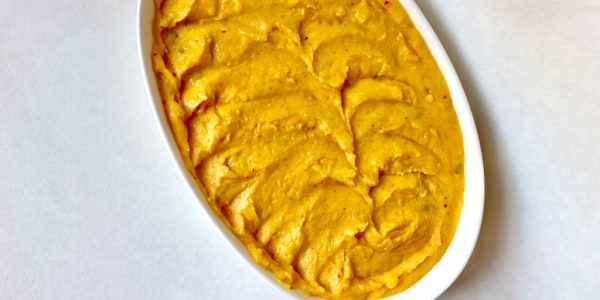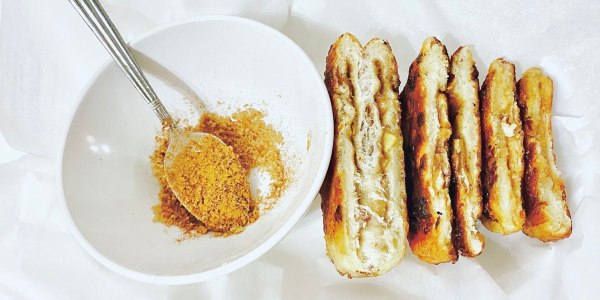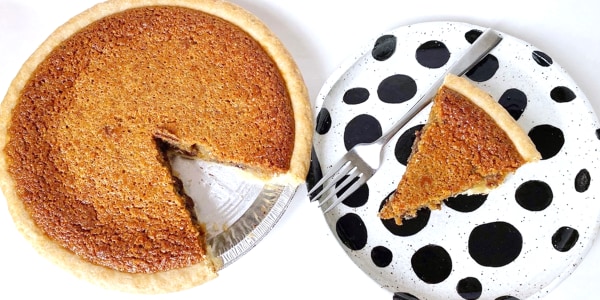In 2020, my family, like so many others, celebrated Thanksgiving and the holidays in an extremely well-coordinated Zoom session. When you have a family that spans four generations, you relish the opportunity to be together in one place, however possible, however brief, however pixelated.
This year, like many families, we will finally reunite at the same table in person.
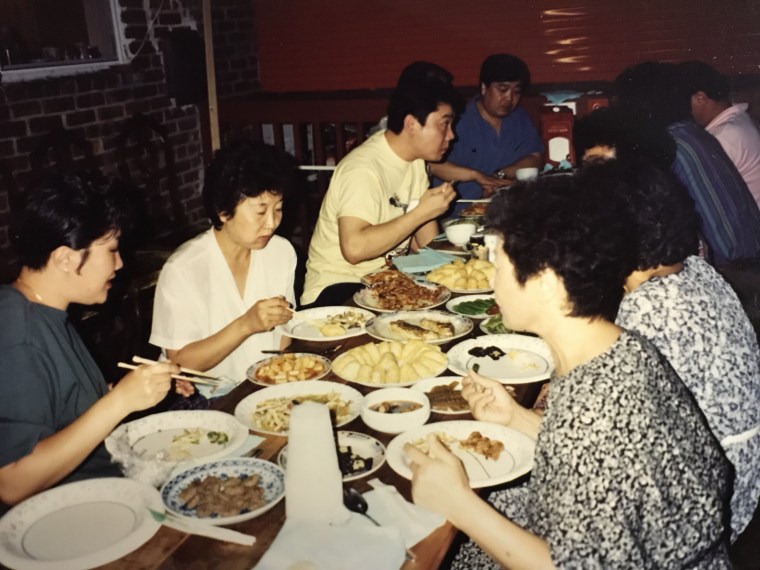
But for Asian American families like mine, our feelings around Thanksgiving are complex. Many of my relatives immigrated to the U.S. in the late '60s and early '70s, and plenty ended up in New York City. There were few Korean American families in their surrounding neighborhoods then, and like so many new American families, many of my relatives felt like they were constantly in survival mode, trying to figure out where they fit in.
My family's very first Thanksgiving holiday dinner was in 1975, at my cousins' apartment on Jerome Avenue in the Bronx. "Back then, there were only so many of us here, so we were all able to gather comfortably," recalled my cousin, Dr. Ken Cooke. "Once we got over ten people, wow! It got tough!"
That first big feast had a spread of delicious Korean food that Ken’s mother cooked — and turkey, a food my family is still very divided on. Nearly every elder across the board shared the opinion that their first Thanksgiving turkey left a lot to be desired. Ken laughed when he remembered trying it for the first time: “It was so dry and gamey! No one (in our family) was used to cooking big turkeys back then, so no one really knew how to make one. I can say now that I probably like turkey really only as turkey Spam.”
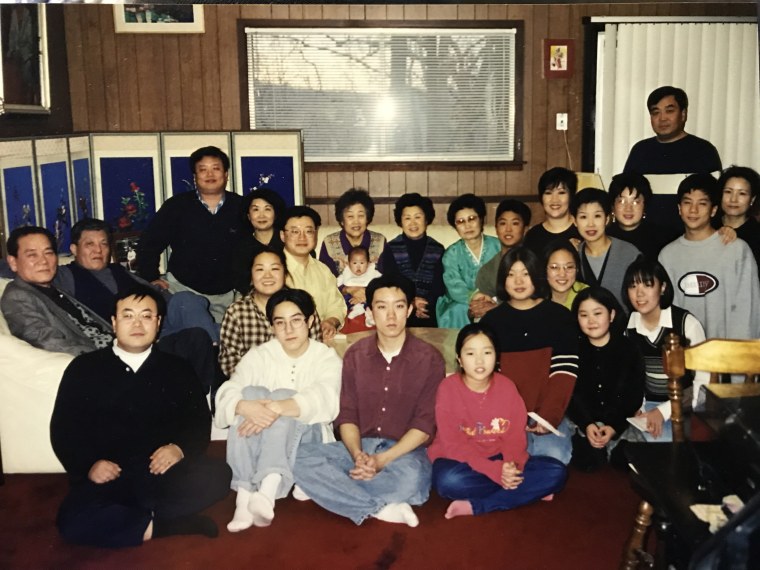
My aunt, Dr. Minja Yoo, explained there was another meaningful intention for putting out a roast turkey on the table for that first Thanksgiving: "(The children) were new kids in their school, so we wanted to make one so they would be able to tell the kids in class that they had a turkey, too."
Even after so many years, my mom's opinion hasn't changed much: “Turkey to me doesn’t have any taste. Everyone has different taste buds. It didn’t give me a feeling. But I only like it when my children make it!”
Though (most of) our family’s relationship with turkey improved over the years, some relatives still chose to celebrate with other special foods on the table. One of my uncles preferred to serve duck on a bed of grilled onions to his family. If he was working, rather than eat the Thanksgiving meal provided to hospital staff, my dad chose to pick up a Peking-style chicken down the street from my parents’ Brooklyn apartment. One of my aunts, Martha Choe, recalls how her family celebrated with crabs and lobsters that they would pick up live from a fishmonger in Harlem, and of course, kimchi. “Back then, I assumed it was part of everyone’s turkey day!" she said.
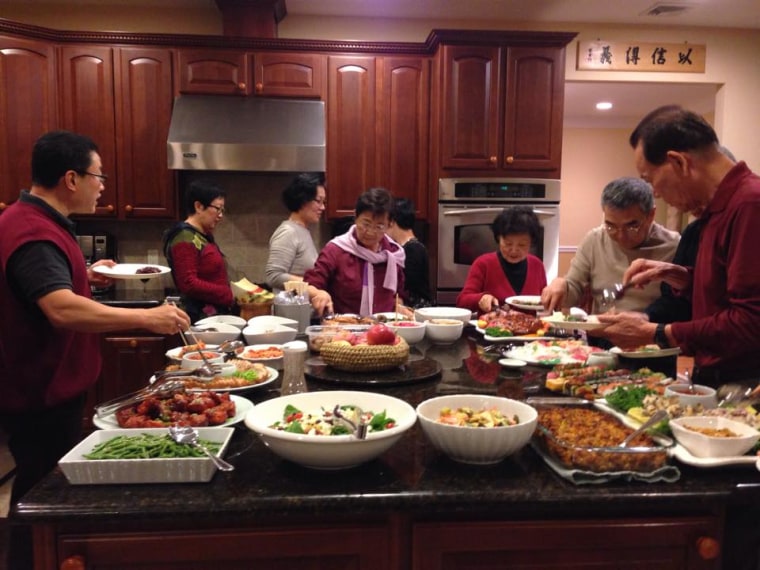
This year, for many Asian Americans like ourselves, Thanksgiving will be particularly reflective, especially in our attempts to process the steep spike in hate crimes against our community. The FBI recently reported there was a 73% increase in reported crimes against Asian Americans, with 279 hate crimes against Asians in 2020 compared to 161 in 2019.
As we continue to navigate such a difficult time, this holiday feels bittersweet. It arrives with joy and gratitude but also what feels like a need to remind the U.S. of our belonging.
"It breaks my heart that we’ve spent this much time here, contributed, assimilated and proven ourselves to be Americans, and this is what people choose to do," Ken told me. "But, you know what? It’s their problem if they can’t accept that this country belongs to all of us.”
Despite the ugliness we've faced this year and our complicated feelings as we approach this American holiday, it's still our time to cherish one another — and we'll always find beauty in that.
With hosting and cooking duties now passed down through the generations, the food has definitely evolved along with the growing number of people. Now, the delicious Korean food is still present, but it's never Thanksgiving without mashed potatoes and gravy, sweet corn and, of course, a gorgeous spread of desserts. As I entered my career as chef, I was more than happy to contribute my own recipes that became traditions.
Thanksgiving is now a part of us, whether people see that or not. We've embraced this tradition — the togetherness, the food, all of it — as we have embraced being Americans.
"I remember realizing that an American didn’t need to look like a pilgrim — though that was, and still is, lost on many people, and that Americanness is not something I will ever let anyone else define for me," my aunt Martha told me.
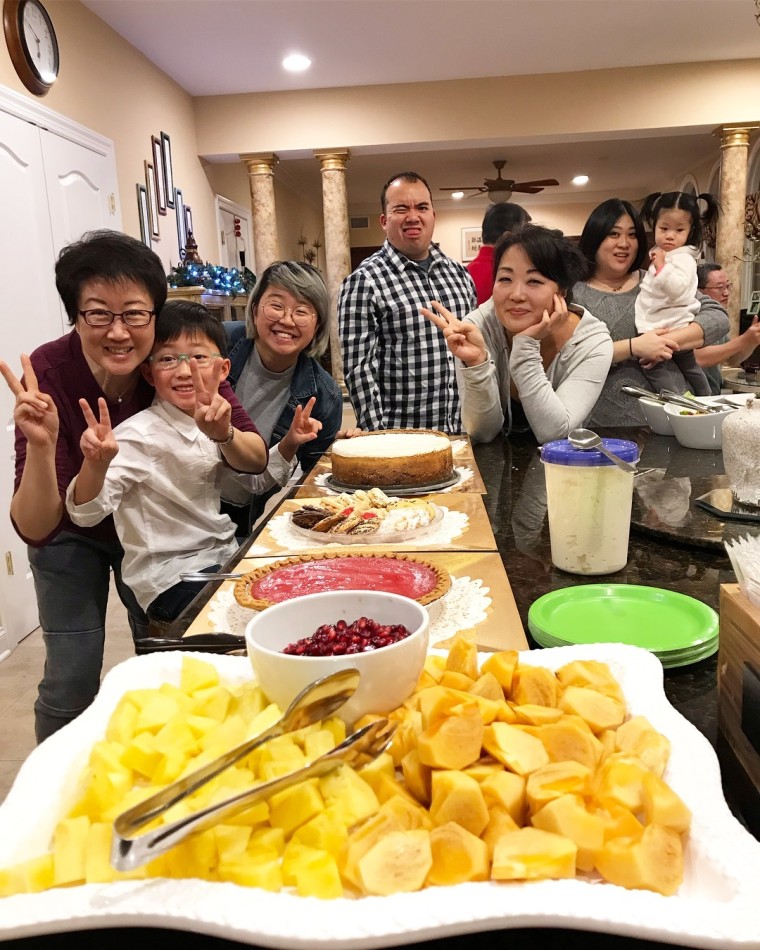
My cousin's son, Tommy, reflected on how Thanksgiving has changed for him since his immigration to the states from South Korea in the late 1990s. “In the eyes of an immigrant 10-year-old, it was scary and weird," he said. "People who look like me but talk nothing like me, eating these big meals. Now, it's the one time in the year I can just eat my heart out and see family, and feel like I’m home again."
My husband, Eric, put it this way: “Hey, we're Americans too, and you love our food and all our cultures have to offer. Don't forget to love us, too.”
